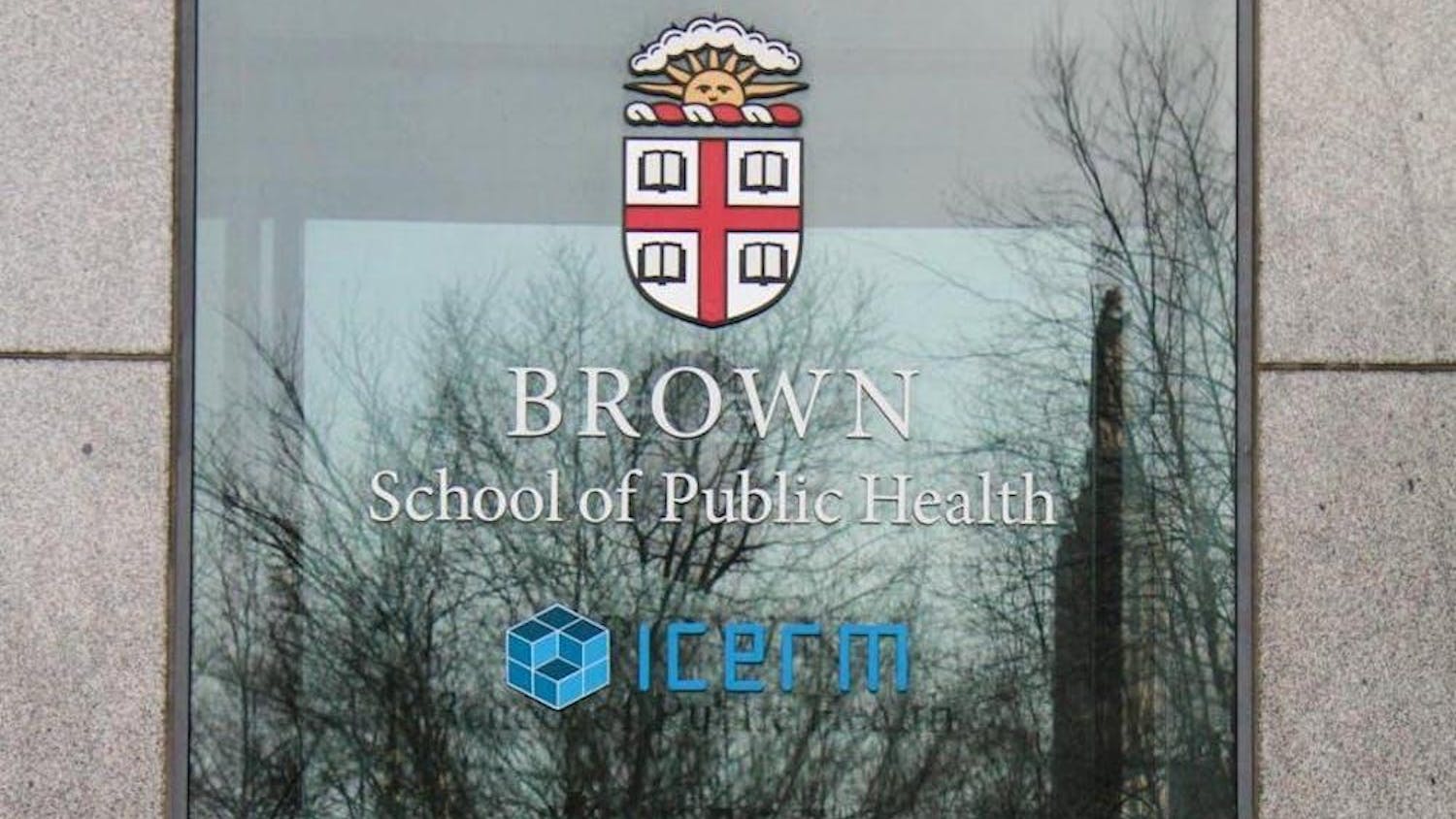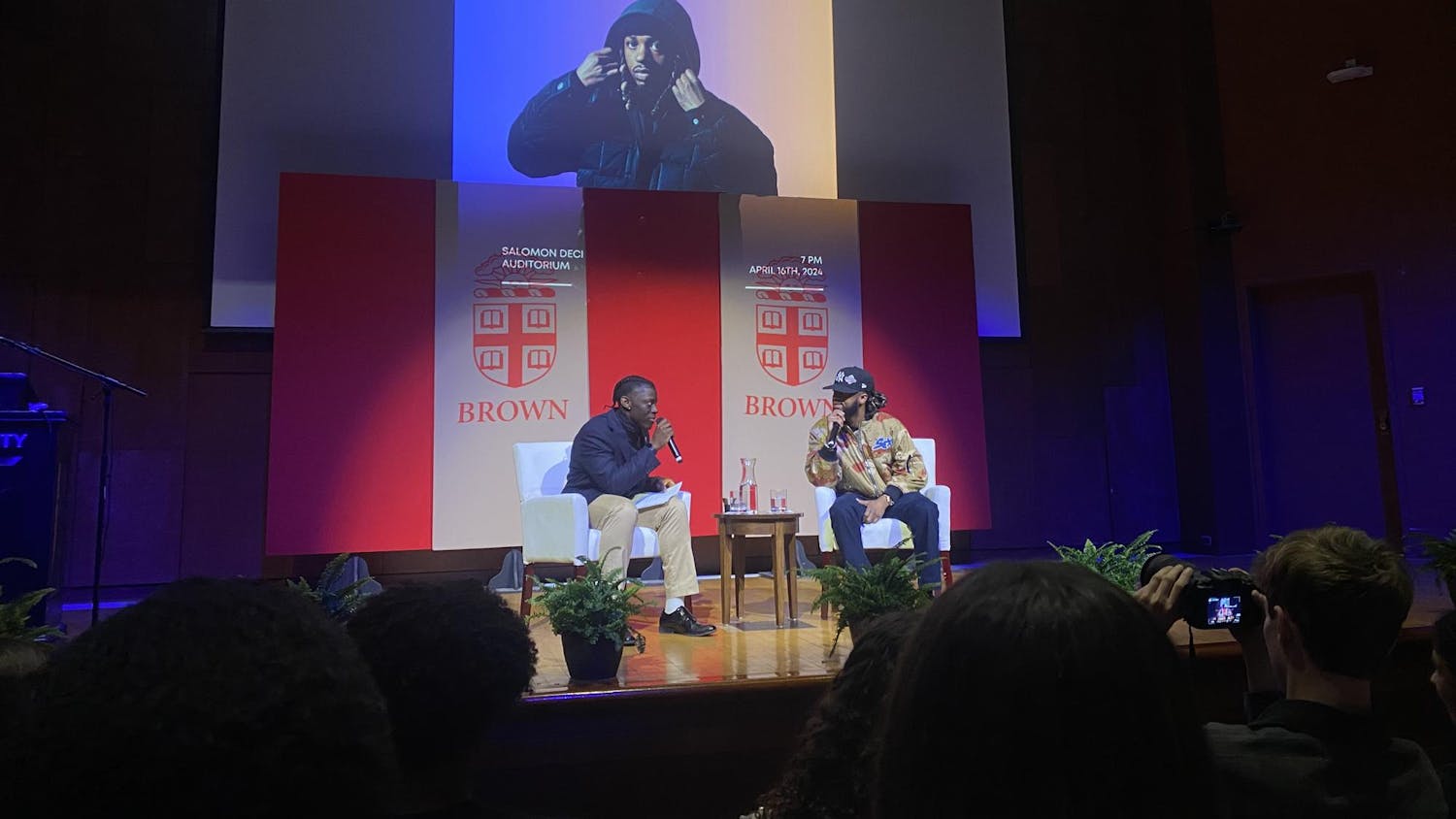While University officials and administrators, including President Christina Paxson, attended a private dedication of a new reading room at the Rockefeller Library Friday evening, about 100 students, staff members and community members rallied on the library’s steps to support unionized library workers’ demands in ongoing contract negotiations with the University.
The dedication preceded a public celebration of the Rock’s 50th anniversary.
Negotiators representing both sides of the dispute met Friday afternoon to discuss both parties’ comprehensive proposals for a new contract for unionized library employees.
Since the previous contract expired Sept. 30, the group has met over a dozen times, said Karen McAninch ’74, business agent for the library workers’ union. A federal mediator specializing in labor negotiations attended three of these meetings, she added. But negotiations have remained stagnant, with workers seeking opportunities for professional development, lower health insurance contributions, higher wage increases and union growth. The mediator asked both parties to come to Friday’s meeting with a new comprehensive proposal, she said.
“The University has offered proposals on staffing issues for the union to consider, particularly of professional development opportunities,” wrote Marisa Quinn, vice president for public affairs and University relations, in an email to The Herald.
Mark Baumer, a library guide at the Sciences Library and member of the negotiating team, said the University’s suggestions contained “nothing really major on staffing, and they left all their cutbacks on the table.”
Representatives from the University’s side of negotiations have agreed to several of the union’s demands, including spreading out health care costs for employees who work nine months out of the year and allowing Annex employees more flexible hours.
McAninch said union workers are frustrated that the University has not yet filled all open staffing positions — there are five open positions and the University has not agreed to fill two of them with permanent, unionized employees. One position will be filled by a permanent, but seasonal employees at the circulation desk of the Rock, she said, and the University offered to fill another position temporarily for four years — a proposal the union finds unacceptable, McAninch said.
In response, the union is proposing to shorten the contract to a one-year agreement to help address current delays in the process of filling vacant positions, McAninch said. “We’re not getting any real progress on the staffing front,” she said.
McAninch will meet individually with Paul Mancini, director of labor and employee relations, and the mediator on Tuesday, McAninch said.
“Staffing decisions must take into account significant changes in the nature of work in the library, the increased use of online materials, and other technological innovations that serve library users,” Quinn wrote.
The University’s effort to hire employees to manage the library’s digital services means now “the population has become bifurcated,” said Penina Posner ’92, senior library specialist at the Rock.
“We realize that the libraries are changing,” said Timothy Engles ’92, a library employee of 22 years. “We’re quite willing and eager to change with the times, but our people need to have access to training,” he said adding that “there’s no reason” technical positions cannot be given to unionized workers.
Engles said the decline in unionized employees is his major concern. Since 2007, the bargaining unit has decreased about 33 percent and the total number of library workers has decreased about 22 percent, The Herald reported in October.
“We’re all stretched very thin,” Engles said.
Several times throughout the evening, shuttle buses and Facilities Management vehicles passed by and the drivers laid on their horns, soliciting cheers from the crowd. Many workers from different University departments participated in the rally and said they were concerned about the outcome of negotiations.
Louis Piaciteli, who has been working for facilities for nearly 30 years, spoke at the rally and said Brown has become increasingly corporatized, adding that since he first started, the working environment has become less of a community.
Piaciteli told The Herald that he would like to see the union have more input on staffing changes. “If they’re taking a job from us, we should be able to negotiate the new job,” he said.
“They just keep trying to hack away at the union positions at Brown, to weaken the union,” said Jesus Sanchez, a driver for Mail Services, citing a decrease in unionized Mail Services driving positions from four to two.
“I’m here today to support the library workers and to support the students and all the people that are out here and are pushing to improve working conditions,” said City Councilman Seth Yurdin, adding “it’s really important that the community is weighing in.”
“Paxson sent out that email about the Deficit Working Group, and a lot of people feel that working group will lead to a lot more things like this happening, which is (unfair) to the workers we have now,” said Michael Murphy GS, a third year graduate student in the Department of Sociology. “You can see here, clearly, students care,” Murphy said.
“I think (Paxson’s) words don’t matter as much as her actions,” said Stoni Tomson ’15, a member of the Student Labor Alliance who helped organize the event.
As Paxson exited the library Friday, she paused to address the crowd. “I really just want to say we are negotiating, and I want to thank you for supporting our library workers,” she said.
The crowd booed, and sang “na na na na, na na na, hey hey hey, goodbye,” as Paxson walked away.
Maahika Srinivasan ’15, president of the Undergraduate Council of Students, said that Paxson, members of the Presidential Leadership Council and other distinguished community members attended the private event during the protest. From inside, she said “you could hear the chanting” and “people were really concerned.” Ongoing contract negotiations were not mentioned during the event, Srinivasan said.
Engles said that “it’s unacceptable” that negotiations have been continuously delayed. “Get the negotiations done and we wont be here. Some of us would go to the party instead,” he said.
Due to an editing error, a previous version of this article misstated Karen McAninch’s year. It is 1974, not 1994. The Herald regrets the error.
ADVERTISEMENT




